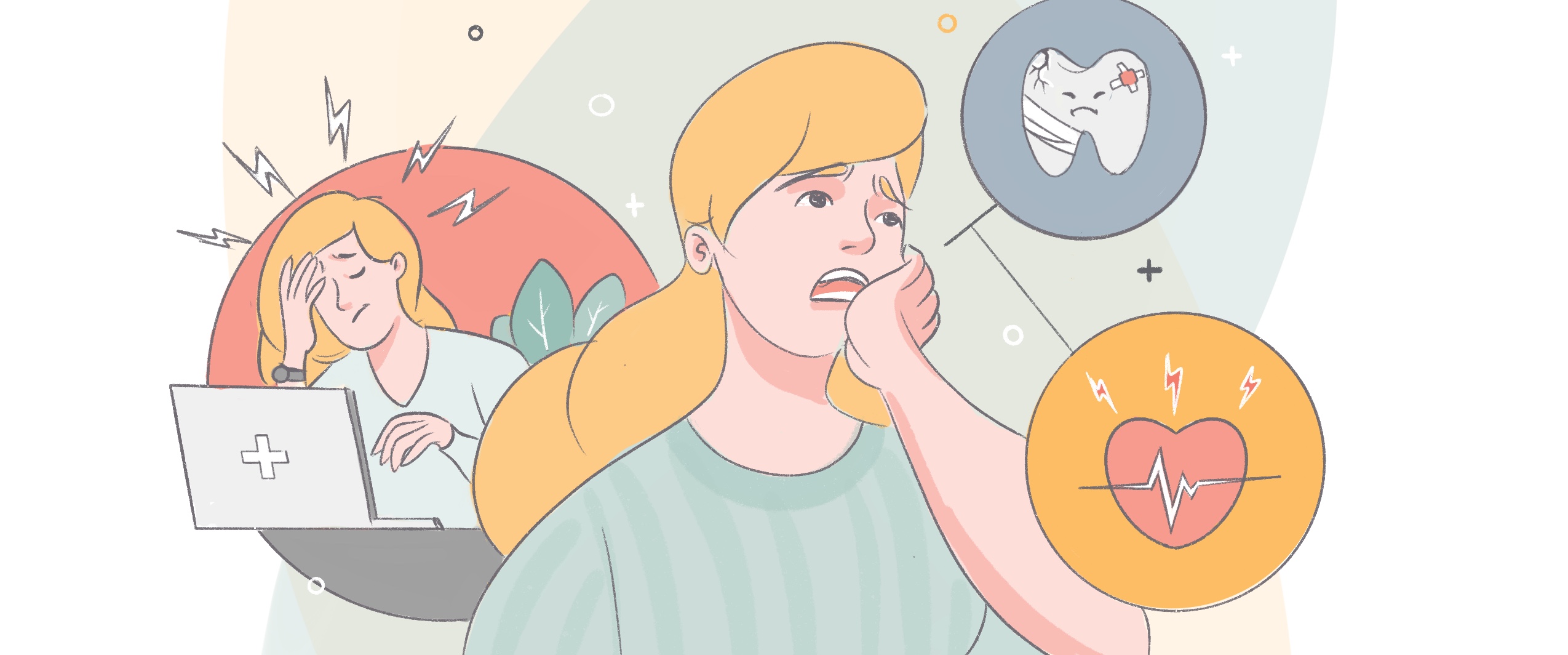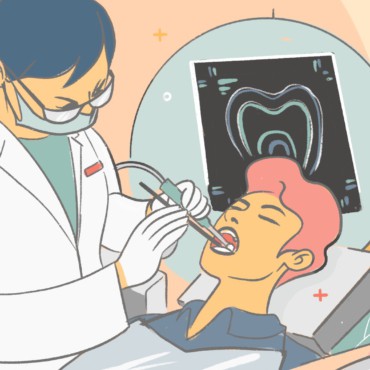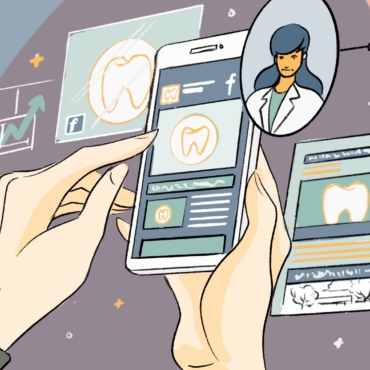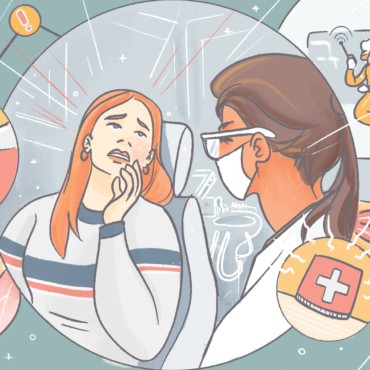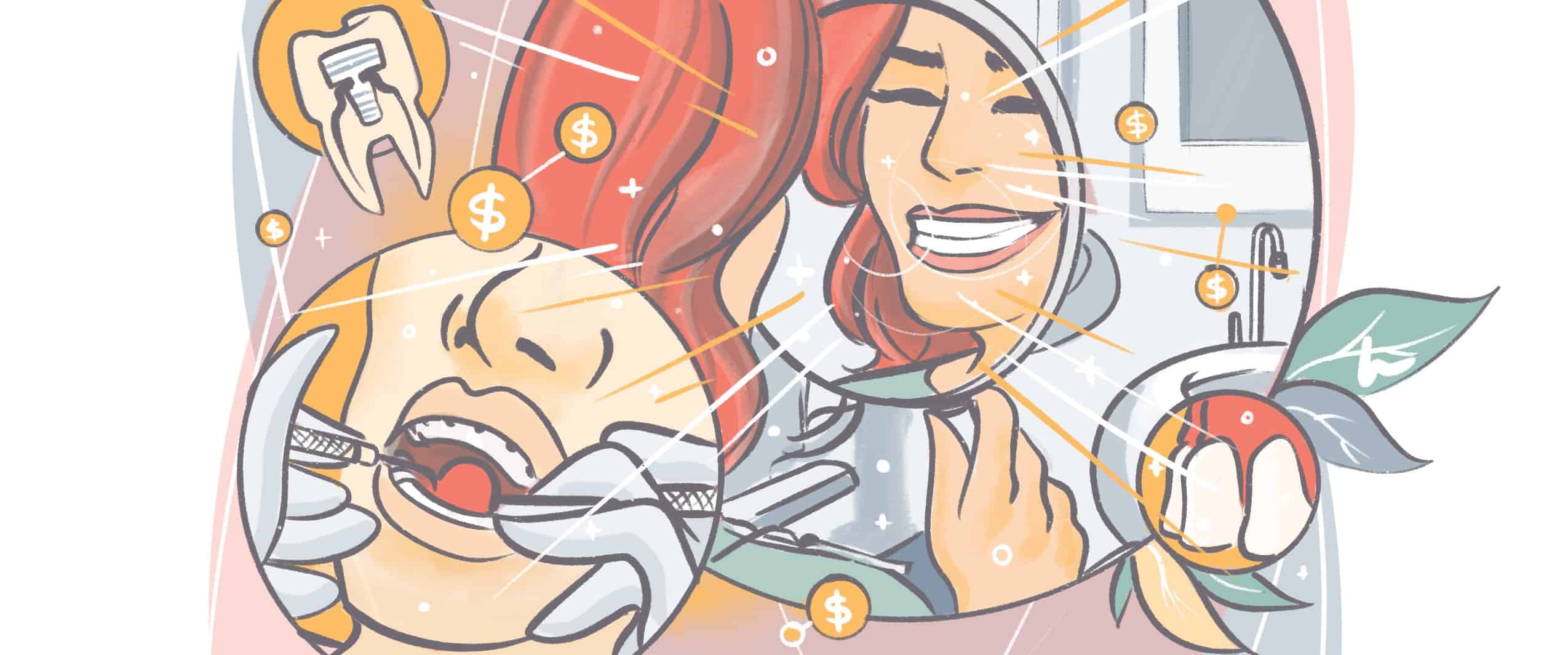
The human body is a wonder! But it does hurt a lot, and sometimes health problems seem to arise out of thin air. Tooth pain is one of those ailments that can really take you by surprise, if you do not keep up with your routine dental appointments! This is just another reason to make sure you go regularly to get your teeth cleaned, and have routine dental checks.
When our teeth hurt, it affects how and what we eat. From mild sensitivity to severe tooth pain, there’s a range of all the tooth feels you may face. And depending on its severity, it may indicate you have underlying oral health problems. The first step to solving any problem is identifying it, then you can start to seek treatment.
Why do my teeth hurt?
Your teeth hurt because of the numerous pain receptors present in the interior layers of your teeth. They essentially hurt because there’s a problem and your body wants you to fix it.
What are the symptoms of tooth pain?
Weird question, right? Well, not exactly. There’s more to tooth pain than just pain in your teeth. Other symptoms can include trouble chewing, ear pain, swollen gums, and headaches. Some of these will occur only during chewing; others may be constant.
What does throbbing tooth pain indicate?
Throbbing toothache pain can mean multiple things. It may mean you have tooth damage. It can also be a sign of tooth decay or cavities. Furthermore, it can be a symptom of an infection in the tooth or the gums around it.
If you have throbbing tooth pain, it means there is some damage to your teeth and you should make a dentist appointment.
Why does my pain come and go?
Intermittent sharp pain can be triggered by opening your mouth too wide or eating something cold. The most common causes of sharp pain that comes and goes are cracked teeth, cavities, or abscesses.
Why are my teeth sensitive all of a sudden?
Sensitive teeth can be a huge annoyance. They can rid you of the ability to enjoy coffee, ice cream, and more of your favorite foods. Sudden tooth pain or sensitivity can be caused by any of the following:
- Teeth whitening products
- Eating a lot of hard foods
- Eating ice
- Gum infection
- Gingivitis or periodontitis (Periodontal disease)
- Inflammation of the tooth pulp (Pulpitis)
- Teeth grinding or clenching (Bruxism)
- Cavities
- Cracked teeth
- Eating disorders (Bulimia)
- Cold weather
- Sinus infection or sinusitis
- Stress
Causes of toothache tooth decay
The most common cause of tooth pain is decay. There are multiple levels to it, ranging from mild to severe. If tooth decay is left untreated it will lead to a tooth abscess.
Cavities are holes in your teeth. These holes go through the enamel and the dentin layers. Since the underlying layers have a lot of blood vessels and are incredibly sensitive, any exposure can cause pain.
Sign up for our newsletter.
Just let us know a bit about yourself.
An abscess is an infection as a result of untreated cavity. The pain from an abscess can be intense if it is acute of nature. If chronic in nature it will give you a dull continuous ache…. To treat an abscessed tooth, your dentist may drain the abscess. Once a tooth is abscessed, or cavity is inside the nerve or pulp of a tooth the only possible treatments are a root canal or a tooth extraction.
Tooth damage
Tooth damage is also a common cause of sensitivity. The term refers to chipped or broken teeth. Also, tooth loss, damaged or broken teeth fillings, implants, and crowns may also cause pain.
Gum disease
Gingivitis is a very common gum disease. It causes redness and swelling of the gums and can cause pain and sensitivity. If left untreated gingivitis can cause periodontitis or loss of bone around the teeth. Periodontitis is irreversible, and will cause pain and swelling of gums and sensitivity to the teeth. and leads to infection and tooth loss if untreated. Whereas gingivitis is reversible with proper treatment periodontitis is irreversible and results in permanent bone loss and possible tooth loss.
The fastest way to stop a toothache at home
These remedies won’t substitute for a trip to the dentist, but they may offer some relief.
Due for a checkup?
Find a top rated dentist near you that takes your insurance.
Clove oil
The most common home remedy for tooth pain is clove oil. It’s been used for centuries and proved to be effective.
Cloves contain ingredients that numb the skin, so when it touches your teeth, it dulls the pain. You’ll need a bottle of clove oil, a cotton swab, a carrier oil (almond or olive oil are the most suitable), and a small dish. (You can also use clove powder, but oil is more effective.)
Mix the ingredients and apply the end product to the area that is bothering you. You’ll feel a difference in about five to ten minutes. Reapply every two to three hours for extended relief. This is a short term solution, and you should see your dentist as soon as possible.
Note: Do not swallow clove oil! It’s not good for you.
Peppermint oil
If you don’t want to use clove oil, you can try out peppermint oil. It has methanol, methanol, which reduces pain. You can use it the same way you would clove oil. Follow the steps given above, replacing clove oil with peppermint.
Salt water rinse
Another effective home remedy for tooth pain is rinsing your mouth with sea salt. The salt acts as an anti-inflammatory and relieves pain. Just dissolve a teaspoon of the salt in some warm water and gargle for 30 seconds. (And spit it out!)
Sensitive toothpaste
Sensitivity toothpastes work by either covering up or desensitizing and covering the dentin tubules in the middle layer of the teeth, which carry pain sensations from outside to the inside.
For a pain-free oral hygiene routine, you should also choose a soft toothbrush and floss gently. Flossing removes food particles that can accumulate between teeth and at the gum line, increasing your risk of gum infections.
Over-the-counter pain medication
OTC medication is easily accessible and, therefore, an excellent home remedy. Pain relievers like acetaminophen (Tylenol) and ibuprofen (Advil) can reduce the ache and sensitivity that come with tooth pain. Make sure you do not have an allergy to these medications when taking any medications. Be sure to follow dosage instructions instructed by your dentist. Call your dentist before taking any OTC medication as they may be able to give you dosage instructions.
Cold compress
A cold compress is basically just an ice pack. If you hold it against the cheek with the sore tooth, it may reduce pain. This happens because of something called vasoconstriction. Exposure to cold temperatures shrinks the blood vessels and limits blood flow to the affected area.
A cold compress helps numb the pain, while also reducing swelling and inflammation.
These home remedies are all effective for temporary relief. But if the pain persists, it’s important to see your dentist. Definitely see him or her if your tooth pain lasts more than two days, you have a fever or earache, if it hurts to open your mouth, or if your tooth pain is intense.
See a dentist
Need your tooth pain evaluated? Find a high-quality dentist with us. We work closely with a number of dentists and help them manage their practices. This means we know them through-and-through and can help you find one that best suits your needs. Plus, as a patient with any of our trusted dentists, you’ll get excellent service and the care you deserve. We literally promise.
We also help you verify dental insurance coverage before you book an appointment. That way you can make sure your insurance is accepted before you arrive at the clinic.
Due for a checkup?
Find a top rated dentist near you that takes your insurance.

